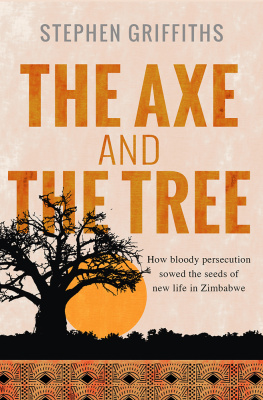Routledge Revivals
THE BRITISH IMPACT ON INDIA
THE BRITISH IMPACT ON INDIA
by
SIR PERCIVAL GRIFFITHS
First published in 1952 by Macdonald & Co. (Publishers), Ltd.
This edition first published in 2018 by Routledge
2 Park Square, Milton Park, Abingdon, Oxon, OX14 4RN
and by Routledge
52 Vanderbilt Avenue, New York, NY 10017, USA
Routledge is an imprint of the Taylor & Francis Group, an informa business
1952 by Taylor and Francis
All rights reserved. No part of this book may be reprinted or reproduced or utilised in any form or by any electronic, mechanical, or other means, now known or hereafter invented, including photocopying and recording, or in any information storage or retrieval system, without permission in writing from the publishers.
Publishers Note
The publisher has gone to great lengths to ensure the quality of this reprint but points out that some imperfections in the original copies may be apparent.
Disclaimer
The publisher has made every effort to trace copyright holders and welcomes correspondence from those they have been unable to contact.
A Library of Congress record exists under ISBN: 35010847
ISBN 13: 978-0-367-17779-9 (hbk)
ISBN 13: 978-0-429-05765-6 (ebk)
THE BRITISH IMPACT ON INDIA
by the same author
THE BRITISH IN INDIA
THE BRITISH IMPACT ON INDIA
by
SIR PERCIVAL GRIFFITHS, C.I.E.
Indian Civil Service (Retired)
Sometime scholar of Peterhouse, Cambridge
First published in 1952 by
Macdonald & Co. (Publishers), Ltd.
16 Maddox Street, W.1
Made and printed in Great Britain by
Purnell and Sons, Ltd.
Paulton (Somerset) and London
To
MY WIFE
PREFACE
FROM ONE point of view it is too soon to write of the British impact on India, for we are still too near to the transfer of power to get the perspective right, or to achieve objectivity, however hard we strive. The writer had, therefore, grave doubts as to the wisdom of undertaking this work at all. On the other hand, there is a place in historical studies for contemporary opinion and it seemed that an estimate of British influence on India, by one who was a close spectator of the events leading up to Indian independence, might not be without value. Even the deficiencies in judgment, or the prejudices of such a writer, might be taken as reflecting enlightened British opinion on the Indian question in the middle of the twentieth century and might thus be of use to some future historian when the lapse of time renders possible an authoritative appraisement of British work in India.
The views expressed in this book have been formed not only by many years study of Indian history but also by innumerable discussions with Indian friends with whom the writer has come into contact, first as an Indian Civil Servant, then as a member of the Indian Legislative Assembly, and finally as a business man. Amongst them must be singled out for particular gratitude Pandit Suresh Chandra Kabyatirtha, an obscure High School teacher in the small town of Contai in Bengal, but a man of great learning, who first taught the writer the fascination of Indian studies.
Thanks are also due to Mr. S. C. Sutton and the staff of what used to be the India Office Library for the courtesy and facilities that they have extended to me. Finally, I must thank my secretary, Miss Taylor, for her great help in the preparation of this book.
P.J.G.
Bickley,
July, 1952
CONTENTS
LIST OF MAPS
India Political (before 15th August, 1947).
India Physical.
Maps 1 to 4 are redrawn from originals in Historical Atlas of India by Charles Joppen. They are reproduced by permission of Orient Longmans, Ltd.
CHANGES OF fashion are as decisive, though perhaps not as frequent, in thought as in clothes, and one of the most interesting examples of such a change is provided by the contrast between the self-confident imperialism of nineteenth-century Britain and the vague belief of the English-speaking peoples today in self-determination as a principle of universal validity. Imperialism is dead as a doornail, and many of our modern writers seem almost ashamed that it ever existed. This view leads them into a logical dilemma, for it involves a condemnation of the main process by which civilisation has been diffused. It necessitates a denial of the benefits conferred on mankind by the Roman Empire and of the great stimulus to the material and spiritual development of India provided by the full-blooded imperialism of the Guptas.
Attempts have been made to escape from this dilemma by arguing that in the present stage of human development, knowledge and culture can be spread by other means than conquest or domination, and that empires have thus become anachronisms. The argument is not convincing, and a more satisfying solution consists in recognition that imperialism is in itself neither good nor bad, but must be judged by its quality and results. It is, indeed, but the outward expression of national energy and exuberance, the outcome of a spirit of exaltation which at times seems to possess a whole nation. Such a spirit worked strongly amongst the ancient Romans in the two centuries before the Christian era; it animated Englishmen from the days of Elizabeth, and Germans after the time of Frederick the Great; and it may well operate powerfully in an India rejoicing in its new-found freedom.
Imperialism is indeed a regularly recurring historical phenomenon, calling for neither approval nor condemnation in the abstract, and a more profitable exercise is to consider particular imperialisms and assess their spirit and their achievements. It may perhaps be taken for granted that for a people who have reached a high level of political consciousness foreign rule is spiritually debilitating. On the other hand, few would doubt that the Norman Conquest of England provided the impulse which was in due course to generate nationalism and a unique political genius. Our object in this book is to consider to what pattern the British Empire in India conformed, and in fact to answer the question as to whether the people of India have been affected for good or for ill by the British connection.
In this enquiry we shall not be led into speculation as to what would have happened if the British had not become the ruling power in India. It may be that in due course order would have emerged out of the chaos that then prevailed, but it is idle to guess as to what would have taken the place of the moribund Mughal Empire or as to how India and the Western World would have established contact and interacted. Britain was in fact the catalytic agent by which Western influence was brought to bear on India, and the only practical approach to our problem is to examine conditions and tendencies in pre-British India, to consider how they were modified in the British period and to let Britain take the praise or the blame for the results.
SOME THIRTY years ago a story was current in Cambridge regarding a distinguished historian, well known for his almost exclusive concentration on the Ancient World, who by some mischance found himself set down to lecture on the distasteful subject of Modern Economic History. In the first lecture of the series he explained, in scholarly terms, how all understanding of modern problems depended on knowledge of historical foundations; and then, happy in his escape, he devoted the entire series of lectures to the Barbarian Invasions of Rome. The story is perhaps too good to be true, but it has a bearing on the present chapter.













